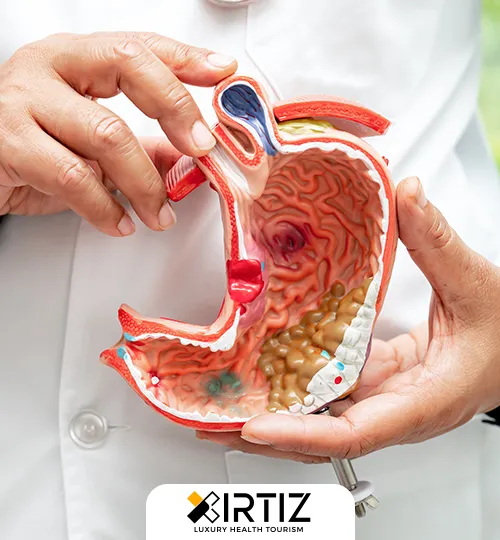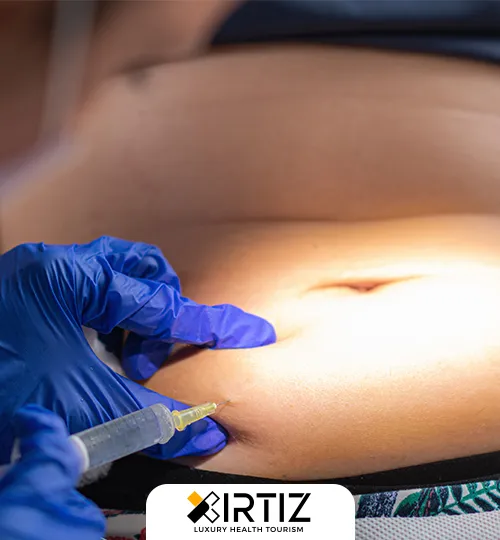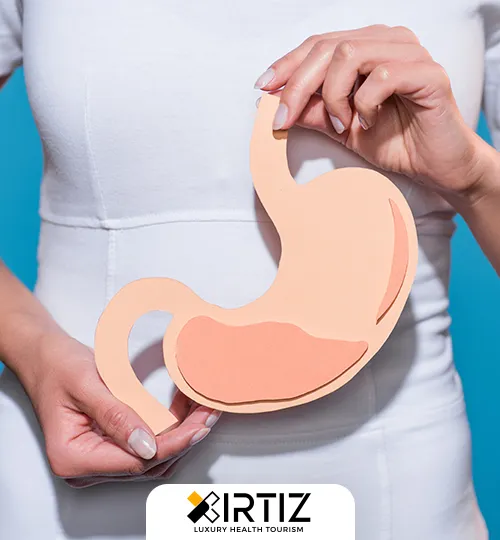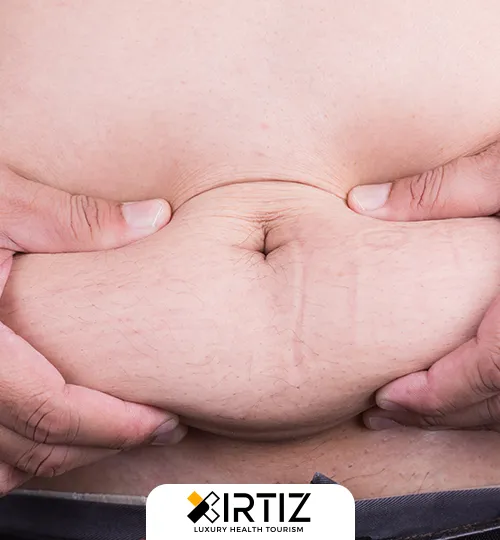Obesity Treatments in Turkey

Sleeve Gastrectomy (Tube Stomach) Treatment
Obesity Sleeve Gastrectomy Treatment and Cost in Turkey
Stomech Botox Treatment
Obesity Stomech Botox Treatment and Cost in Turkey
Gastric Balloon
Treatment
Obesity Gastric Balloon Treatment and Cost in Turkey
Gastric Baypass Treatment
Obesity Gastric Baypass Treatment and Cost in Turkey
Gastric Band Treatment
Obesity Gastric Band Treatments and Cost in TurkeyWhat is obesity?
Obesity is an abnormal or excessive accumulation of fat in the body. It is a widespread disease that affects 1 billion people worldwide (879 million adults and 159 million children) and kills up to 2.8 million people every year.
Obesity also brings with it many other diseases. These include diabetes, sleep apnea, heart disease, insulin resistance, hyperlipidemia, osteoarthritis, respiratory disease, coronary heart disease and many cancers (gallbladder, endometrial, ovarian, breast, colon and prostate). It has been found that people who have recovered from obesity not only have a higher quality of life or a reduction in psychological complaints, but also a longer life expectancy of 15 to 20 years.
Some of them are: Sleeve gastrectomy (tube stomach), Stomach botox, Gastric balloon, Gastric bypass and Gastric band.
1. Sleeve Gastrectomy (tube stomach)
Sleeve gastrectomy or tube stomach is the preferred obesity surgery. In this procedure, most of the stomach is removed and a smaller stomach pouch is created. This new stomach receives fewer nutrients and should therefore enable the patient to eat less and lose weight quickly through a high calorie deficit. The procedure is usually performed laparoscopically, i.e. through a small incision and with special instruments. During the procedure, about 75-80% of the stomach is removed and the remaining part is transformed into a tubular structure. Sleeve gastrectomy is recommended for patients who have a body mass index of 40 or more or a BMI of 35-40, and for those who have also other health problems related to obesity. These health problems include many diseases such as type 2 diabetes, high blood pressure, sleep apnea and heart disease.
2. Stomach Botox
Stomach Botox is one of the non-surgical treatments for obesity. It involves the application of Botox using an endoscopic method to certain parts of the stomach of patients whose body mass index is between 25 and 35 and who cannot lose weight no matter how hard they try. While the feeling of hunger decreases after Botox treatment of the stomach without surgery with Stomach Botox, the feeling of fullness lasts longer. Weight loss is achieved with the right diet and exercise. The Body Mass Index method is used all over the world to calculate whether a person is obese. The result is determined by dividing the person's weight (kg) by the square of their height (m2).
3. Gastric Balloon
The gastric balloon is a clinically proven method to reduce hunger, so you can eat less and lose weight without surgery. It is a short-term solution to kick-start your weight loss and helps you learn healthy habits. This allows you to maintain success after treatment so that you keep the weight loss off. Weight loss reduces the risk of developing medical problems associated with obesity, such as high blood pressure, diabetes, arthritis, breathing problems and asthma. The gastric balloon is a soft silicone bag that is inserted endoscopically into the stomach and filled with blue-coloured sterile saline solution. The balloon is approved for a retention time of around 12 months.
With the gastric balloon, you will feel full earlier at mealtimes, allowing you to reduce your portions and eat less, which will help you lose weight. The balloon stays in place for six months while you learn healthy eating habits and kick-start your weight loss with the help of specialist bariatric team. After six months, the gastric balloon will be removed and a decision can be made as to whether surgery will be performed or another balloon will be inserted for another six months. Patients can expect to lose an average of 2.5 pounds or 16 kg in the first six months, and if they remain committed, it goes beyond that. In general, this is a very safe procedure.
4. Gastric Bypass
Gastric bypass is one of the operations used in the treatment of obesity. In this procedure, a small part of the stomach is used and the intestine is reshaped. Due to this procedure, part of the food consumed by the patient goes directly into the intestine and aims to provide the patient with less food and create a feeling of satiety. Like sleeve gastrectomy, gastric bypass is usually performed laparoscopically, i.e. through a small incision and with special instruments. During the procedure, the stomach is formed into a small pouch and a connection is created between a small part of the stomach and the intestine. In this way, part of the food consumed by the patient passes directly into the intestine and a feeling of fullness is created. Gastric bypass is recommended for patients with a body mass index of 40 and above or for patients with a BMI of 35-40 but with other obesity-related health problems, just like sleeve gastrectomy.
5. Gastric Band
Gastric band surgery is a form of bariatric surgery that is adjustable and reversible. A silicone band, the Lap-Band, is placed around your stomach. The gastric band reduces your stomach volume and slows down the passage of food through your stomach. This can make you eat less. The adjustable gastric band is a surgically implanted device that helps people with obesity lose weight. It is one of several types of bariatric surgery that restrict how much you can eat at one time (restrictive weight loss). The gastric band is an adjustable, inflatable tube made of soft silicone. It is placed around the upper part of your stomach and forms a ring. This inflatable ring is connected to a connector that is placed under your skin. Your surgeon can tighten the fit of the band by accessing the skin port and injecting with saline fluid, enough to allow a small outlet between the upper portion of your stomach and the lower part. When you eat, upper stomach pouch will fill up quickly, making you feel fuller faster. In general, you may be a candidate for bariatric surgery if you’re suffering from health conditions related to obesity and if other methods of weight loss haven’t worked for you. Compared to other bariatric procedures, the gastric band has the lowest complication rate after surgery and there is no division of the stomach or intestines. It can also be removed if needed.
Also, some foods and beverages, especially those that are high in fats and sugars, are more likely to lead to weight gain. Items that tend to increase the risk of weight gain include: fast foods, fried foods (such as french fries), fatty and processed meats, many dairy products, foods with added sugar (such as baked goods), ready-made breakfast cereals, cookies, foods containing hidden sugars (such as ketchup) and many other canned and packaged food items, sweetened juices, sodas, alcoholic drinks, as well as breads and bagels.
Eating too much of these foods and doing too little exercise can result in weight gain and obesity. People with diets that consist mainly of fruits, vegetables, whole grains and water are still at risk of gaining excess weight if they overeat or if genetic factors increase their risk. However, they are more likely to enjoy a varied diet while maintaining a moderate weight. Fresh foods and whole grains contain fiber, which can encourage healthy digestion and help a person feel full for longer.
Also, physical activity affects how a person’s hormones work and hormones have an impact on how the body processes food. However, the type and intensity of activity may affect the degree to which it benefits the body in the short and long term. When a person does not sleep enough, their body produces ghrelin, which is a hormone that stimulates appetite. At the same time, a lack of sleep also results in a lower production of leptin, which is a hormone that suppresses appetite.
Revision surgery
Revision surgery is performed in cases where reoperation is necessary in the process after obesity surgery. If a patient continues to gain weight after bariatric surgery or is unable to drop below the prescribed weight, they may be taken back for surgery, called revision surgery. The patient is re-evaluated for revision surgery when the desired result cannot be achieved or other conditions arise. Generally, those who use drugs and have eating disorders, refuse vitamins, minerals or nutritional support as well as those with reflux are not suitable for revision surgery.
A patient who has had bariatric surgery may not be considered suitable for new bariatric surgery in the assessment. Before deciding on revision surgery, the suitability of the patient for revision surgery is assessed by reviewing the case. In addition, it is necessary to evaluate the failed patient. Afterward, when a patient is being re-evaluated for revision surgery, he should also be seen by a psychologist and a dietitian. It is also important to determine whether there is an unwanted factor called stress, as it will seriously affect the success of the revision surgery. Postoperative examinations of patients can be performed every three months in the first year and at 18 and 24 months in the second year. It is done annually with a follow-up after the third year.
Many factors play a role in the development of obesity. Genetic traits can increase the risk in some people. Eating a healthy diet that contains plenty of fresh foods and getting regular exercise will reduce the risk of obesity in most people. However, those with a genetic predisposition to the condition may find it harder to maintain a moderate weight.
We did not come to this world to compete with anyone. Anyone who wants to compete with us is wasting their time. We came into the world to compete with ourselves, overcome our limits, fears, fight against our mistakes, overcome difficulties and go in search of our goals. And then you realize that you can be the happiest person in the world when you achieve your goals. Because what you achieve is not for sale, but is worth a fortune.

 Free Consultation
Free Consultation



